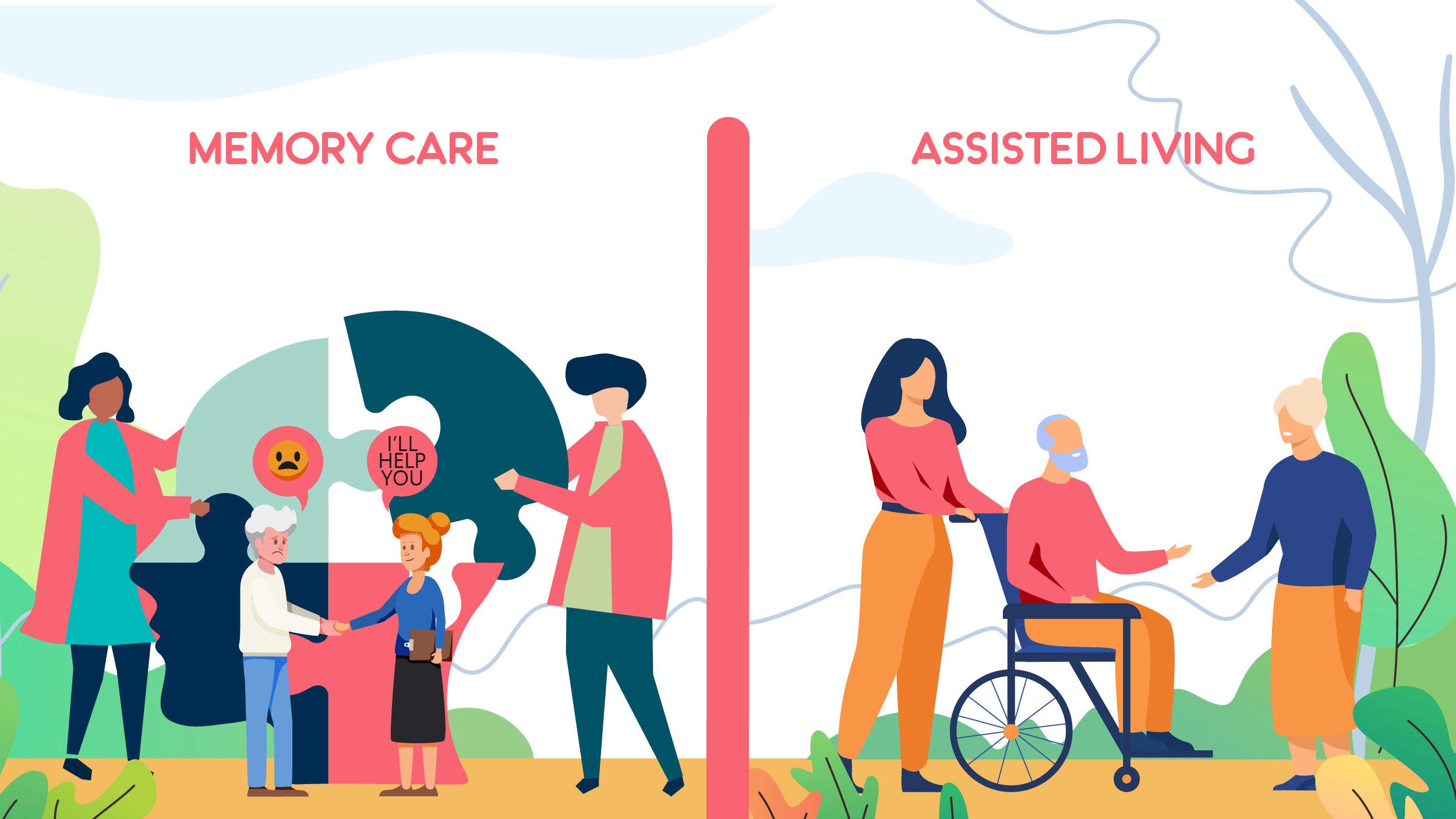Trusted Assistance and Compassionate Providers for Alzheimers Care Charlotte
Creating a Safe and Encouraging Environment for Alzheimer's Treatment
The creation of a secure and helpful setting for individuals with Alzheimer's is extremely important in improving their quality of life. This includes not only physical adjustments within the home, such as minimizing threats and incorporating acquainted elements, yet also the implementation of organized routines and significant tasks that cater to their cognitive demands. Understanding the psychological and psychological measurements of care can substantially influence their sense of protection and connection. Checking out these diverse strategies can reveal vital understandings right into effective caregiving techniques that might change the day-to-day experiences of both caretakers and people.
Recognizing Alzheimer's Demands
Regularly, people with Alzheimer's illness display a series of requirements that require tailored strategies to care. As the problem proceeds, cognitive decrease shows up in different methods, impacting memory, thinking, and also the capability to carry out daily tasks. Caretakers should recognize these evolving demands to supply proper support and ensure a better of life for those affected.
One crucial facet of recognizing Alzheimer's requirements is recognizing the importance of regular and experience. People often locate convenience in well established patterns, which can decrease anxiousness and complication. Caregivers should make every effort to produce structured day-to-day timetables that include purposeful activities aligned with the person's abilities and passions.
Additionally, reliable communication is paramount. People with Alzheimer's may battle to reveal themselves or comprehend complex language. Caretakers should use basic, clear language, use non-verbal signs, and practice energetic listening to cultivate understanding and connection.
Last but not least, social and emotional requirements can not be neglected. Giving opportunities for social interaction and keeping partnerships can dramatically improve emotional well-being. Caregivers ought to urge engagement in neighborhood tasks or family members gatherings, promoting a feeling of belonging and objective. Understanding these diverse requirements is essential for creating a helpful treatment setting.
Creating a Safe Home
Producing a risk-free home for individuals with Alzheimer's disease is important to reducing risks and advertising self-reliance. The design of the living space should focus on security while enabling for personal convenience. Get rid of prospective risks such as loosened rugs, sharp objects, and mess, which can lead to falls or accidents. Make certain that paths are clear and well-lit, as proper lighting decreases disorientation and enhances flexibility.
Incorporating adaptive features is additionally essential. Set up grab bars in shower rooms and near stairs, and think about using non-slip mats in damp areas. Furthermore, making use of contrasting shades for walls and floors can aid in identifying spaces, assisting to minimize confusion.
Experience is necessary for individuals with Alzheimer's. Customizing the setting with familiar objects and photos can enhance a sense of belonging and safety - Alzheimers Care Charlotte. It is additionally advantageous to have actually a marked location for daily activities, such as reading or crafting, which can supply framework to their day
Lastly, executing a safe exterior room allows for safe exploration while getting in touch with nature. By attentively making the home setting, caretakers can considerably improve the lifestyle for people dealing with Alzheimer's condition.
Enhancing Interaction Abilities

Non-verbal communication, including face expressions, gestures, and touch, plays an essential duty in sharing empathy and understanding. Maintaining eye call and a calm disposition can improve the comfort level of the individual, promoting a feeling of security.
Furthermore, it is essential to practice energetic listening. This includes being fully existing, showing perseverance, and allowing the individual additional hints to reveal themselves without disturbance. Repeating might be needed; caretakers must be prepared to revisit inquiries or topics, as people with Alzheimer's may deal with memory recall.
Furthermore, making use of visual help or signs, such as photos or acquainted objects, can assist in recognition and interaction. Inevitably, enhancing interaction abilities is regarding constructing trust and producing an environment where individuals really feel listened to, valued, and understood, consequently improving their lifestyle.
Motivating Social Communication
Fostering significant social communications can greatly enhance the wellness of people with Alzheimer's condition. Engaging with others not only assists fight sensations of isolation but likewise promotes cognitive feature and psychological health. Structured social activities, such as group video games, arts and crafts, or music therapy, produce possibilities for residents to get in touch with peers and caregivers, which can cause boosted state of mind and reduced anxiety.
Producing an inviting setting that urges socialization is necessary. This can be attained by preparing communal spaces that help with interaction, such as relaxing seating locations or activity areas. Furthermore, including familiar and culturally pertinent tasks can urge and trigger memories engagement, enabling individuals with Alzheimer's to feel more linked to their previous experiences.
Furthermore, caregivers must be trained to identify and promote social involvement among residents. By focusing on social communication, we can significantly improve the lives of those living with Alzheimer's, promoting a feeling of neighborhood and belonging.
Sustaining Caregiver Health

To sustain caretakers, companies should use normal training and educational resources to improve their understanding of Alzheimer's illness and caregiving strategies. Offering access to reprieve treatment solutions enables caretakers to take essential breaks, reducing tension and tiredness - Alzheimers Care Charlotte. Furthermore, promoting a neighborhood with assistance teams can assist in psychological sharing and the exchange of functional suggestions among caregivers, producing a network of shared support
Mental health resources, such as therapy solutions, can additionally be essential in resolving the psychological toll caregiving can take. By focusing on caregiver wellness, we create a more lasting caregiving setting that not just benefits the caregivers themselves but additionally boosts the general high quality of care received by people with Alzheimer's. Eventually, supporting caregivers is a vital element in fostering a efficient and compassionate treatment setup.
Final Thought
Finally, the production of a supportive and secure atmosphere for individuals with Alzheimer's is important to boosting their lifestyle. By prioritizing safety and security with thoughtful design, cultivating emotional health with acquainted elements, and advertising interaction through structured regimens, caregivers can dramatically affect the overall experience of those influenced by this condition. Sustaining caregiver health is important, as it ultimately adds to a more efficient and caring treatment setting.
Rep might be needed; caregivers need to be prepared to revisit subjects or concerns, as people with Alzheimer's may have a hard time with memory recall.
